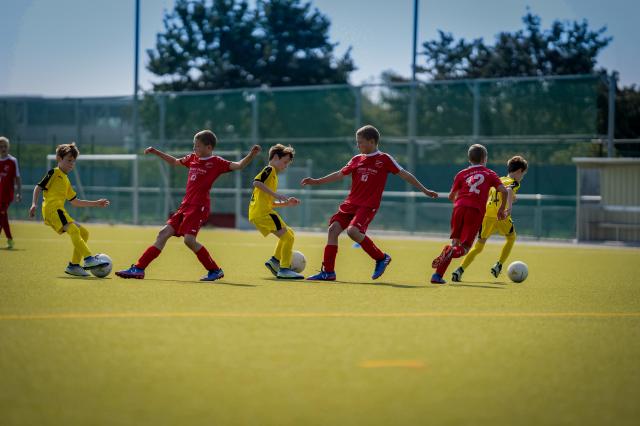Victoria University research shows young people who swapped community sport for bike rides or other unstructured physical activities during Covid-19 lockdowns may not return – unless clubs find new ways to re-engage them.
With closed competitions and cancelled training for most of 2020 and 2021, sport club participation rates in Victoria have plummeted, according to research from Victoria and Federation Universities.
Registration records for the state’s most popular 10 sports, including AFL, cricket, gymnastics, netball, tennis, and swimming, indicate members fell from a 2019 peak of 868,000 – representing more than 13 per cent of all Victorians – to about 637,000, or less than 10 per cent in 2020.
Just over half all participants were aged under 14.
VU researcher Professor Rochelle Eime said if clubs could not entice former members to return – and recruit new ones – community sport could lose a generation of people, especially children aged four to nine who showed the biggest drop-off.
“The early adopter group missed out on school PE as well as club sport. Many have not yet developed skills to throw or kick a ball and don’t have much motivation or confidence to join clubs.”
Recruiting this group will require junior clubs to go back to basic skills development in a fun and inclusive environment, she said.
“Declining physical literacy of young children has been an issue for years, but the pandemic made it worse. If we don’t do something now, Covid-19’s legacy will be an even wider gap between advantaged and disadvantaged children.”
Another reason for the drop-off may be due to parents who have reassessed time and cost commitments of club sport compared to the less demanding activities that featured during lockdowns – especially those with several kids, she said.
Professor Eime said one solution to address this is for clubs to find flexible ways to involve the family in a range of competition and play formats, including informal sport.
Previous research revealed participants join clubs primarily for enjoyment and socialising, meaning recruitment strategies must emphasise fun over premierships. This is especially true for girls and young women at another critical drop-out stage of adolescence.
Against this backdrop, clubs continue struggling to recruit and retain volunteers who are the lifeblood of these organisations, especially coaches, she said.
It is too early for 2021 data but anecdotal evidence shows some winter sports, such as soccer and AFL, have already started pre-season training for 2022, in a signal they are eager to re-engage with their young members in new ways.
VicHealth’s Future Healthy Executive Manager, Kristine Cooney said participation in physical activity, and the social connection it brings, is more important than ever for the mental and physical wellbeing of young people.
“This new research is another example of how young people have been hardest hit by the pandemic,” Ms Cooney said.
“We must work with sporting clubs and local communities to listen to our young people and understand what they need to be active and socially connected.
“As we recover from the pandemic, it’s vital we create a Victoria where no young person is denied a future that is healthy, regardless of their postcode, bank balance or background.”







